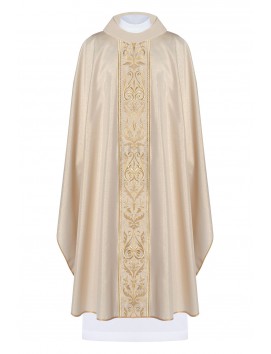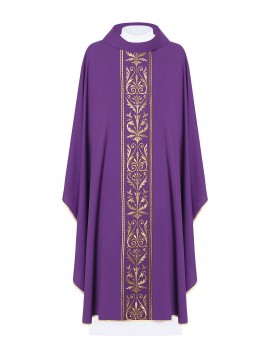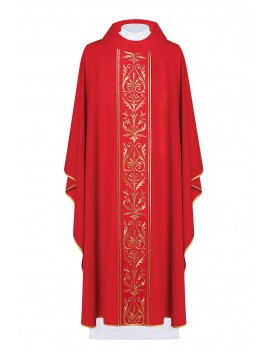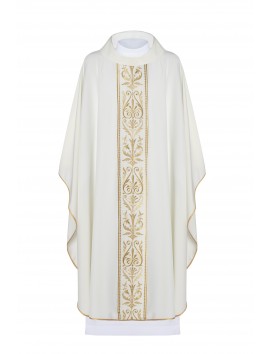The Bible does not give specific instructions on how to dress for church, but it does encourage modesty and respect for self and others. The focus should be on worshiping God and being respectful in a holy place. Many churches have their own dress codes or guidelines, so it's always a good idea to check with the church first. Ultimately, the way one dresses for church is a personal choice and should be guided by a desire to honor God and show reverence for the occasion.

Is there a dress code in Christianity?
There is no specific dress code in Christianity, as the Bible does not prescribe any particular style of dress or requirements for believers. However, most Christians believe that one's dress should reflect modesty, humility and respect for God and others.
Many churches have dress codes or guidelines for attendees that may require modest dress, such as avoiding revealing or provocative clothing. The dress code may also vary depending on the type of service or occasion. For example, a wedding or funeral service may require more formal dress than a regular Sunday service.
Ultimately, how one dresses as a Christian is a personal choice that should be guided by a desire to honor God and show reverence for the occasion.
What does the Bible say about proper dress for church?
The Bible does not give specific instructions on how to dress for church. However, it does encourage modesty and respect for self and others. The focus should be on worshiping God and being respectful in a holy place.
In 1 Timothy 2:9-10, the Apostle Paul instructs women to "dress modestly, with decency and modesty, not with braided hair or gold or pearls or costly clothes, but with good deeds befitting women who profess to worship God". This passage emphasizes the importance of modesty and humility rather than ostentatious or expensive clothing.
Similarly, James 2:1-4 says:" My brothers and sisters, believers in our glorious Lord Jesus Christ, must not show favoritism. Suppose a man comes to your meeting wearing a gold ring and fine clothes, and a poor man comes in with dirty old clothes. If you give special attention to the man with the fine clothes and say, 'Here's a good seat for you,' but tell the poor man, You stand there.
What has God given us to wear?
The Bible teaches that God has given us spiritual clothing to put on. Colossians 3:12 says: "Therefore, as God's chosen people, holy and dearly loved, clothe yourselves with compassion, kindness, humility, gentleness and patience. This passage suggests that we should wear these spiritual qualities as a garment, reflecting the character of Christ in our lives.
In addition, in Ephesians 6:10-18, Paul describes the "armor of God" that we are to put on to withstand spiritual attacks. This armor includes the belt of truth, the breastplate of righteousness, the shoes of the gospel of peace, the shield of faith, the helmet of salvation, and the sword of the Spirit, which is the Word of God. This armor is a metaphor for the spiritual protection and strength that God provides for us.
Overall, God has given us spiritual clothing and armor to wear, which includes qualities such as compassion, humility and faith.
Why do religious people dress modestly?
Religious people dress modestly as a way of showing respect for themselves and others. Modesty is often considered a virtue in many religious traditions and is seen as a way to promote purity and humility. Modesty is also seen as a way to remove distractions and focus more on spiritual matters, especially in a sacred setting such as a place of worship.
In addition, many religious teachings emphasize the importance of self-control and discipline, and dressing modestly can be seen as a way of exercising self-control over one's appearance and behavior. This can be particularly important for those who seek to live a life of service to God, as it reflects a desire to live a life that is pleasing to God.
Overall, dressing modestly can be seen as a way to promote virtues such as humility, purity and self-control, and to show respect for oneself, others and the divine.




















